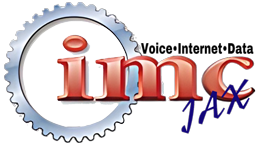Chatbots, also termed conversational AI (artificial intelligence), have made AI more popular than ever. They can help with simple tasks, though AI agents have greater power and a wider range of use cases. Read on to learn more about the prospective move from chatbots to AI agents to provide a better user experience as well as save time and money.
Just What Are Chatbots?
Chatbots are automated programs that use artificial intelligence to interact with humans via text, graphics, video or voice. They are programmed to help with simple, routine tasks and questions. They can vary in sophistication to be digital assistants that can handle requests in a more personalized way as well as process information. The more sophisticated chatbots can use data to be more interactive and personalized.
Chatbots bring value through productivity enhancements. They can augment writing, research and graphics to free up workers for more complex and strategic tasks. Where humans can only perform tasks one at a time, chatbots can handle multiple requests simultaneously, or serve multiple customers. Customer research has shown that messaging applications are becoming the preferred method for some transactions, according to an Oracle article.
How an AI Agent Differs From a Chatbot
A higher level of sophistication is a key difference between agents and chatbots. Chatbots can certainly elevate performance by automating tasks and workflows, as long as tasks aren’t terribly complex. Agents powered by AI can be even more efficient, acting autonomously based on data, natural language programming, and machine learning. Human workers can equip agents with algorithms, sensory inputs, data sources and even other agents to perform tasks like perceiving context, taking action (through completion), and using this experience in the future. Agents can be taught to learn, as well as tailored to set goals and act on those goals. Unlike chatbots, agents don’t depend on keywords or scripts.
Business Benefits of AI Agents
Via continuous training, along with more data, agents can even recognize when they don’t have enough information to make a solid decision, and can gather more data. They can work even outside office hours, allowing businesses to get more work done, since they aren’t prone to downtime. They can complete tasks the same way every time, increasing accuracy, like making sales calls and scheduling meetings. Agents can automate processes and save costs, and even find ways to further optimize processes to eliminate possibly costly errors for the company.
Return on Investment in AI Agents
How will you know if your use of AI agents is paying off? Are you experiencing more conversions and serving more people? How many more? How much revenue are you bringing in as a result of automation? How many minutes per customer interaction are you saving by using the agent? Spending for AI can be justified if it alters the bottom line, increasing it by at least 3% according to some experts.
Agents and Chatbots Working Together
While perhaps it remains to be seen, agents and chatbots could work together, but for different purposes. Perhaps chatbots could take an initial question and answer it, but if the situation becomes more complex, it could be transferred to an AI agent.
The future of artificial intelligence is exciting. Stay tuned, and keep in touch with your trusted technology advisor.




